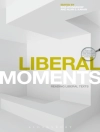The end of communist rule in China will be one of the most momentous events of the twenty-first century, sounding the death knell for the Marxist-Leninist experiment and changing the lives of a fifth of humanity. This book provides a likely blow-by-blow account of how the Chinese Communist Party will be removed from power and how a new democracy will be born.
In more than half a century of rule, the Chinese Communist Party has turned a poor and benighted China into a moderately well-off and increasingly influential nation. Yet the Party has failed to keep pace with change since stepping aside from daily life in the late-1970s. After nearly a hundred years of frustrating attempts to create a workable political system following the overthrow of the last dynasty, the prospects for democracy in China are better than ever, according to Bruce Gilley.
Gilley predicts an elite-led transformation rather than a popular-led overthrow. He profiles the key actors and looks at the response of excluded elites, such as the military, as well as interested parties such as Taiwan and Tibet. He explains how democracy in China will be very ‘Chinese, ‘ even as it will also embody fundamental universal liberal features. He deals with competing interests—regional, sectoral, and class—of China’s economy and society under democracy, addressing the pressing concerns of world business. Finally he considers the implications for Asia as well as for the United States.
The end of communist rule in China will be one of the most momentous events of the twenty-first century, sounding the death knell for the Marxist-Leninist experiment and changing the lives of a fifth of humanity. This book provides a likely blow-by-blow account of how the Chinese Communist Party will be removed from power and how a new democracy will be born.
In more than half a century of rule, the Chinese Communist Party has turned a poor and benighted China into a moderately well-off and increasingly influential nation. Yet the Party has failed to keep pace with change since stepping aside from daily life in the late-1970s. After nearly a hundred years of frustrating attempts to create a workable political system following the overthrow of the last dynasty, the prospects for democracy in China are better than ever, according to Bruce Gilley.
Gilley predicts an elite-led transformation rather than a popular-led overthrow. He profiles the key actors and looks at the response of excluded elites, such as the military, as well as interested parties such as Taiwan and Tibet. He explains how democracy in China will be very ‘Chinese, ‘ even as it will also embody fundamental universal liberal features. He deals with competing interests—regional, sectoral, and class—of China’s economy and society under democracy, addressing the pressing concerns of world business. Finally he considers the implications for Asia as well as for the United States.
Table des matières
Introduction
Part 1: Crisis
1. Democracy and China
2. Broken Promises
3. The Bane of CCP Rule
4. Resources for Change
Part 2: Transition
5. Breakdown and Mobilization
6. The Democratic Breakthrough
7. The Immediate Aftermath
Part 3: Consolidation
8. The Political Challenge
9. Refurbishing Economic and Social Life
10. A Changed International Role
Conclusion
Afterword
Notes
References
Index
A propos de l’auteur
Bruce Gilley is an assistant professor of political science at Portland State University. He serves on the editorial board of the Journal of Democracy and is the author of
Tiger on the Brink: Jiang Zemin,
China’s New Elite, Model Rebels: The Rise and Fall of China’s Richest Village, and, with Andrew J. Nathan,
China’s New Rulers: The Secret Files. He lived in China and Hong Kong for more than a decade, working as a journalist for the
Far Eastern Economic Review Magazine.












